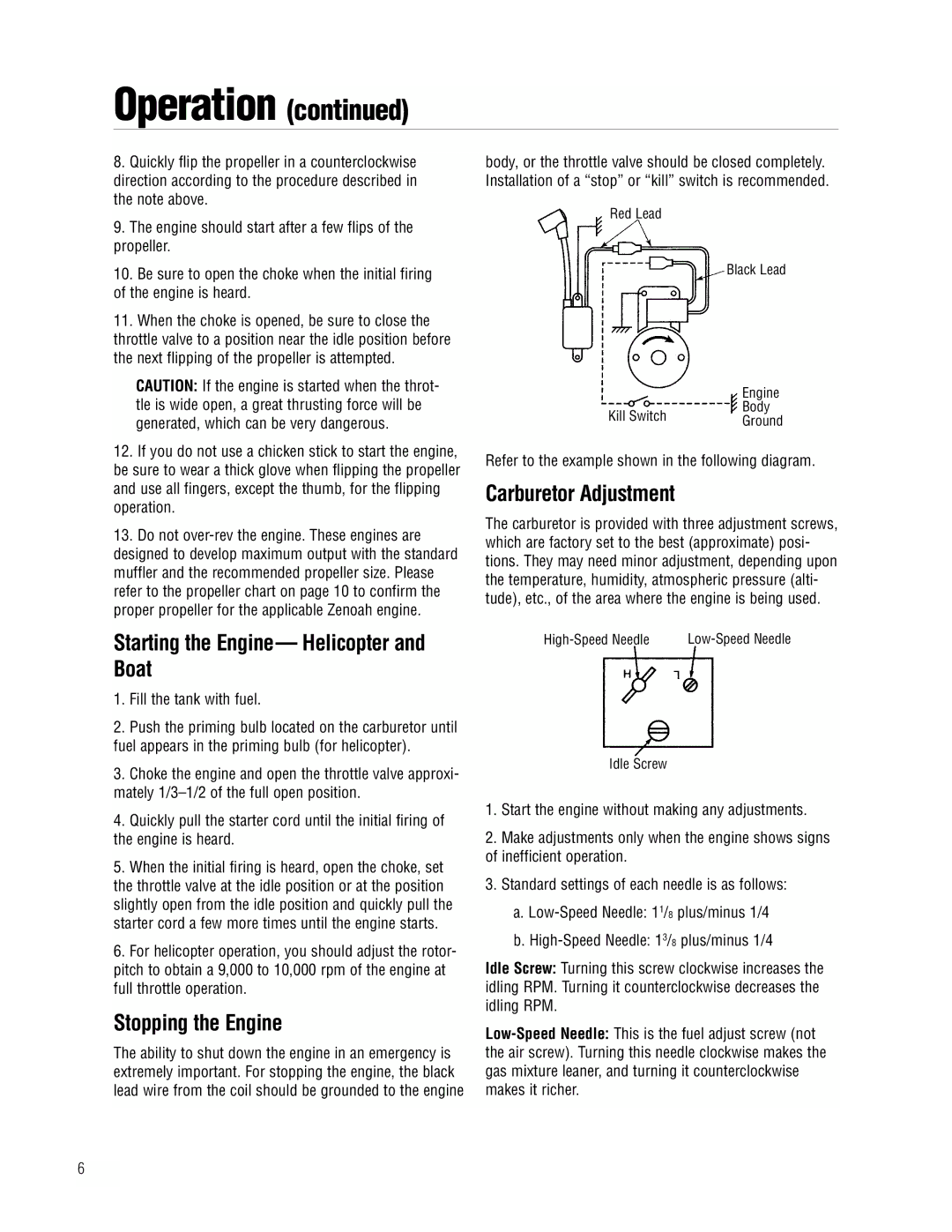Zenoah specifications
APC Zenoah is an innovative and cutting-edge technology brand recognized for its premium quality products designed for various applications, including outdoor power equipment and industrial engines. With a strong focus on enhancing performance and durability, APC Zenoah has established a reputation for reliability among professionals and hobbyists alike.One of the main features of APC Zenoah products is their powerful engine technology. Equipped with advanced two-stroke and four-stroke engines, these devices deliver impressive torque and efficiency. The engines undergo rigorous testing to ensure optimal performance across a range of operating conditions, making them suitable for heavy-duty tasks. The fuel efficiency of APC Zenoah engines significantly reduces operating costs, while the high power output meets the demands of commercial and recreational users.
The lightweight design of APC Zenoah products is another important characteristic. By utilizing high-quality materials such as aluminum and composite plastics, these tools and equipment remain easy to handle without compromising on strength or durability. The ergonomic design further enhances user comfort, allowing for extended periods of operation without fatigue. This attention to user experience sets APC Zenoah apart from competitors.
APC Zenoah also incorporates innovative technologies such as vibration dampening and low noise emissions. These features are crucial for reducing operator fatigue and ensuring compliance with environmental regulations. The vibration-dampening systems effectively minimize the impact of engine vibrations on the operator, making it safer and more comfortable to handle the equipment. Meanwhile, the low noise emissions technology ensures that users can operate their tools without causing undue disturbance to the surrounding environment.
The brand also emphasizes versatility in its product line, offering a range of tools suitable for diverse applications. From chainsaws and brush cutters to leaf blowers and trimmers, APC Zenoah products are designed to meet the specific needs of various users, whether in landscaping, forestry, or agriculture.
In conclusion, APC Zenoah stands out in the market with its commitment to performance, durability, and user-friendly design. By combining advanced engineering with innovative technologies, the brand continues to set industry standards, making its products a top choice for professionals and enthusiasts who demand excellence in outdoor power equipment.

